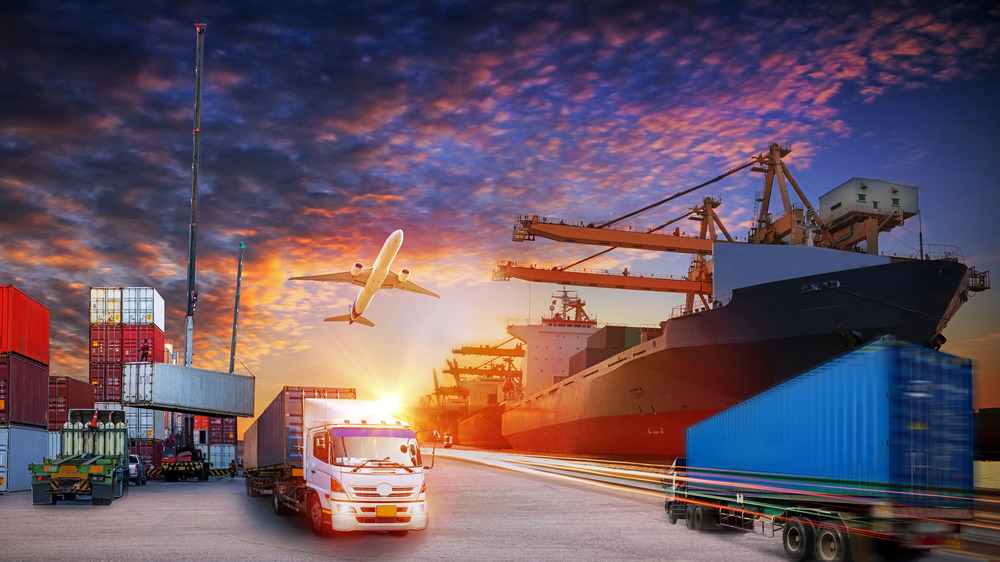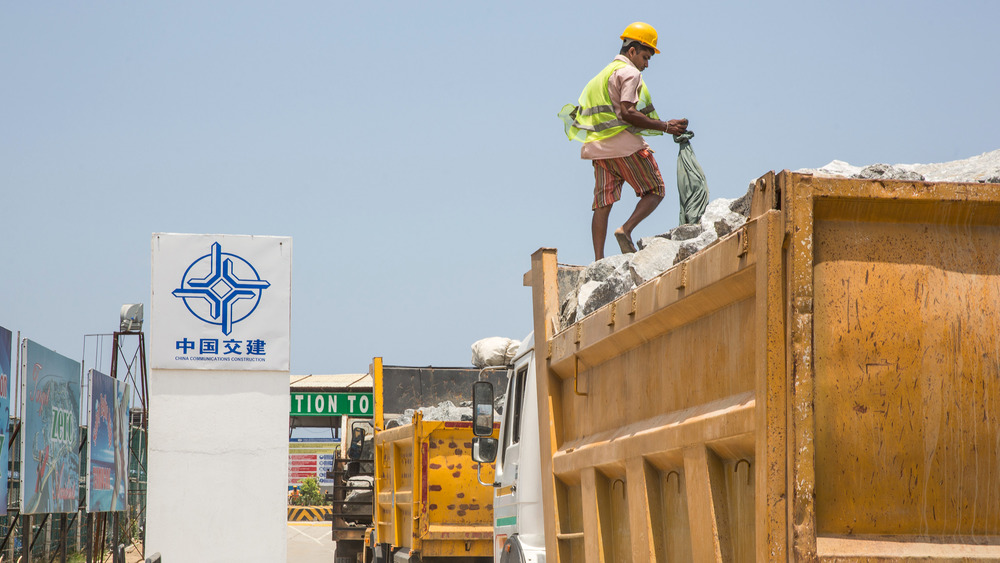China's Belt And Road Initiative Explained
In 2013, China announced that it was embarking on what was to be the largest global infrastructure project in history. The Belt and Road Initiative (BRI) is a vast trade network of overland and maritime routes connecting China and as many as 70 other countries in Asia, Africa, and Europe, many of which are located along the route of the old Silk Road. According to a now-defunct website for the 2017 Belt and Road Forum for International Cooperation, the initiative aims to increase trade and spur economic growth via five strategic priorities: "policy coordination, facilitating connectivity, unimpeded trade, financial integration and establishing new bonds between people." China says that the countries that participate will see more jobs, reduced poverty, and improved infrastructure, among other benefits.
The World Bank recognized and even quantified some of these benefits, but also noted that the initiative — which is expected to cost anywhere from $500 billion to $1 trillion — doesn't come without risks. And some of those risks could end up taking the world in a direction normally reserved for dystopian science fiction novels. These risks include things like environmental damage, abandoned infrastructure, and unchecked debt, but the most worrying for critics of the initiative are definitely the governance and social risks. Let's take a look into China's Belt and Road Initiative and see what kind of world it's possibly leading us into.
Critics warn of China's 'debt-trap diplomacy'
Experts agree that China's expansion of infrastructure in and of itself is not problematic. However, its methods of carrying out that expansion have become cause for concern. The Guardian reported in 2018 that researchers at Harvard had sounded the alarm for what they called "debtbook diplomacy," also referred to as "debt-trap diplomacy." This method of expansion involves China heavily investing in infrastructure projects in poor countries, then offering hefty long-term loans. The infrastructure projects tend to go overbudget and produce lackluster returns, and when it's time for the countries to pay up, China offers debt forgiveness in exchange for other seemingly unrelated concessions.
Such concessions include things like political influence, control of infrastructure, cession of land, and more. In 2017, Sri Lanka leased a port to China for 99 years after it couldn't make repayments. As The Guardian pointed out in another 2018 piece about the overall risks of the BRI, Tajikistan ceded 447 square miles of disputed territory in exchange for China writing off loans the small country couldn't handle. Other at-risk countries include Mongolia, Kyrgyzstan, Pakistan, Djibouti, the Maldives, Laos, Montenegro, and more. Some experts warn that China could be laying the grounds for expanding its military influence around the world, as much of the commercial infrastructure being built, such as the port facilities in Sri Lanka, have dual-use capabilities. "If it can carry goods, it can carry troops," said an expert with the Center for Strategic International Studies.
China's Belt and Road Initiative could be the beginning of a global Big Brother
The BRI takes on a frighteningly dystopian quality when one considers that this is all taking place in the 21st century, when humanity is obsessed with connecting everything — from air fresheners to toothbrushes to flip flops — to the internet of things. In 2020, China completed its 30-satellite BeiDou network, its own version of GPS. As NPR reported, BeiDou is an integral part of the BRI. Blake Berger, a senior program officer at the Asia Society Policy Institute, called BeiDou the "digital glue" meant to connect all of the infrastructure built by the BRI. All of the highways, bridges, ports, and other smart city structures China has built across the globe have been designed to be connected to the BeiDou navigation system.
You can probably guess where this is going. Not only does this connectivity bring host countries further under China's sphere of influence by making them dependent on Chinese technology, it also potentially gives China the ability to track anyone who uses it in real time. Of course, we've already had the NSA doing that very thing for years, but we don't want China digitally creeping on us, as well. One of the other things China tends to get countries to concede in exchange for debt forgiveness is silence on its horrifying human rights violations, so the idea of the country knowing where you are at any given time is really quite terrifying.


